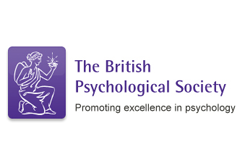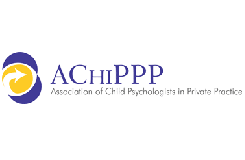What do we do in our psychological and Educational Assessments
A psychological and/or educational assessment is a comprehensive assessment carried out by a qualified child psychologist, which is focused on a child’s emotional, cognitive, educational and social functioning and underlying strengths and difficulties that may be preventing your child from achieving their potential.
Some reasons why parents request a psychological or educational assessment:
- A lack of motivation
- A lack of confidence in one or more areas of functioning
- Anger and frustration, especially related to homework
- Not achieving their potential at school
- Difficulties concentrating
- Anxiety
- Sleeping problems that are ongoing
- Social difficulties with other children
- Not listening to instructions
- Challenging behaviour
- Lack of engagement in schoolwork
- Anxiety about going to school
- Many stomach aches or feeling sick with no physical cause identified
- Low mood or seems sad or withdrawn
- Behaviour is difficult to manage at home/school/both.
- Suspected learning difficulties/differences
- Lack of progress at school
- Concerns that child may have some kind of learning issue
- Concerns about Dyslexia
- Extreme levels of stress during exams
- Identifying whether a child may is gifted and talented and how to support them.
- Concerns that a child may have a diagnosable condition such as ADHD, Autism etc.
What is involved in a psychological or educational assessments:
- Emotional Assessment: An assessment of emotional functioning includes obtaining and understanding of the nature of emotional, social or behavioural difficulties that your child may be experiencing. As part of this, we talk to the child or teenager being assessed to get an idea of what they find easy or difficult, their preferred learning styles and their perception of themselves and their strengths as well as a detailed understanding of their emotional and perceived social functioning or difficulties. We use a combination of talking, drawings, stories and other assessment tools. This type of assessment provides a greater understanding of factors that may be contributing to uncontrollable emotions or challenging behaviour, which in turn facilitates recommendations and strategies for supporting you and your child with these.
- A standardised Cognitive/Intellectual Assessment. This will provide the psychologist with an understanding of your child’s Verbal Ability, Perceptual Skills, Working Memory, Attention and Concentration and Processing Speed. See our main website for more information.
- A standardised Educational Assessment of skills in the classroom including reading, writing, overall literacy, numeracy and listening and comprehension skills. See main website for more information.
- Use of other Standardised Tools as appropriate to a parent’s concerns and a child’s specific needs
Procedure for Psychological or Educational Assessments:
- Prior to the psychological and/or educational assessment, we will initially send you (and if you consent, the school) a comprehensive questionnaire to complete and return back to us.
- We will arrange an initial session where we discuss your concerns about your child and think together to consider which aspects, if any, of formal assessment may help to understand and support them with their current difficulties.
- Depending on above discussion, we will arrange one or two sessions with your child where we use some or all of the above assessment tools. Children and teens usually find the psychological and educational assessments interesting and enjoyable, and do not perceive them as pressurising in any way.
- We then offer face to face feedback to parents including comprehensive recommendations and strategies to support you and your child in addressing their particular strengths and areas of difficulty. The results of this assessment will give you an idea of your child’s learning strengths and weaknesses. Understanding their approach to their schoolwork, their ability to manage their work and their relative strengths and weaknesses are key to providing them with appropriate support and helping to kindle the development of self-confidence. We offer advice and support for dealing with emotional and behavioural difficulties, academic difficulties, social problems, relationship difficulties, developmental difficulties, mental health issues, learning difficulties and specific difficulties such as ADHD, Dyslexia or Asperger’s syndrome. We also suggest referral to other professionals such as occupational therapists, speech therapists and medical professionals, where appropriate.
- Following this, a full psychological and educational assessment report is compiled with details about your child’s strengths and difficulties, and with suggestions and recommendations forsupporting your child to reach their emotional, social and academic potential. We provide a comprehensive set of specific recommendations to further support your child. This includes your child’s strengths and difficulties, strategies for supporting learning and motivation, strategies to manage their emotions and/or behaviour both in and outside the classroom, identification and/or diagnosis of learning difficulties, dyslexia or giftedness, and identifying additional support a student might need in school or exams.
Small Print
If a parent is unsure whether an assessment or treatment is necessary, we offer a free telephone consultation to discuss your concerns. In some instances, psychological/educational assessment may not be necessary or may not be the best option for your child, in which case we will try and help point you in the direction of other appropriate assessment, treatment or services.





